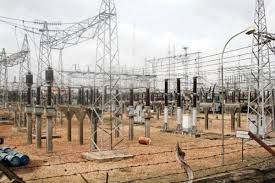As the Federal Government formally hands over the successor companies of the Power Holding Company of Nigeria to private investors on Friday (today) amid threats from the disengaged workers, The PUNCH has learnt that the sum of N1.278bn will be spent on “special security arrangements” for the protection of the privatised power assets nationwide.
The arrangement is to beef up security around the PHCN successor companies nationwide so as to ensure a smooth handover to the core investors.
Newsmen learnt that the sum, which will be shared by the Nigerian Army, the Nigeria Security and Civil Defence Corps and the Directorate of State Security Service, had already been approved by the National Council on Privatisation chaired by Vice-President Namadi Sambo at its October meeting.
The money will be drawn from the special funds set aside from the proceeds of the sale of the firms.
According to a memo dated October 14, 2013, raised by the Minister of Power, Prof. Chinedu Nebo, and exclusively obtained by our correspondent, the Office of the National Security Adviser recently presided over a meeting of the Nigerian Army, SSS, NSCDC and the Ministry of Power on the need to guard the national power infrastructure from October 20 to December 3, 2013, a period in which the new owners would have settled down to run the companies.
“The meeting became imperative as a result of intelligence report viz-a-viz probable subversive activities and reactionary outburst that might be unleashed by some disgruntled staff members of the moribund PHCN and successor companies (GencoS and DiscoS), thus the need to monitor and guard the national power infrastructure,” the minister wrote.
He added that the three security agencies at the meeting presented the financial requirements for the nationwide surveillance and protection for the period as N1.278bn.
According to the breakdown, SSS will get N115m; the NSCDC will get N239.9m, while the Nigerian Army will get N186.6m and an additional N737.1m as outstanding debt.
In explaining the outstanding debt, Nebo wrote, “Prior to this latest planned security exercise, the Nigerian Army was engaged to protect the power infrastructure due to the prolonged agitation as well as activities of the labour groups in the power sector and the vandalism of some power facilities by hoodlums.
“The ministry is indebted to the Nigerian Army for the services and the inability to fully pay the Army was due to paucity of funds and non-budgetary allocation. The Nigerian Army is requesting for payment of the services rendered.”





